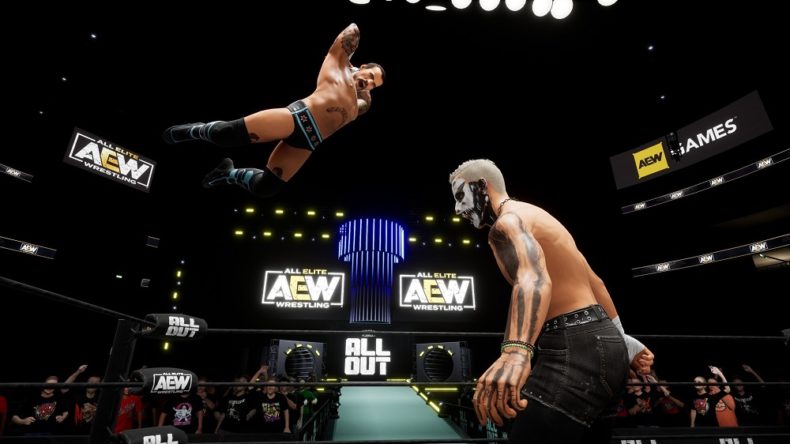It is an exciting time to be a wrestling fan. As a fortysomething full-on mark for the Sport of Kings, there have been other eras which have held importance, significance, and critical acclaim – most notably for me the Monday Night Wars run that segued into Attitude, all underpinned and influenced by the astonishing rise of ECW. It was during this golden 1996-2003 period that the big hitters were not only delivering in-ring and at the box office, but genuinely began to do so on our home consoles. After years of substandard attempts at the genre, there were finally ways to vicariously fake fight the shit out of friends and AI that didn’t feel clunky and unsatisfying.
Five Star Rivalry
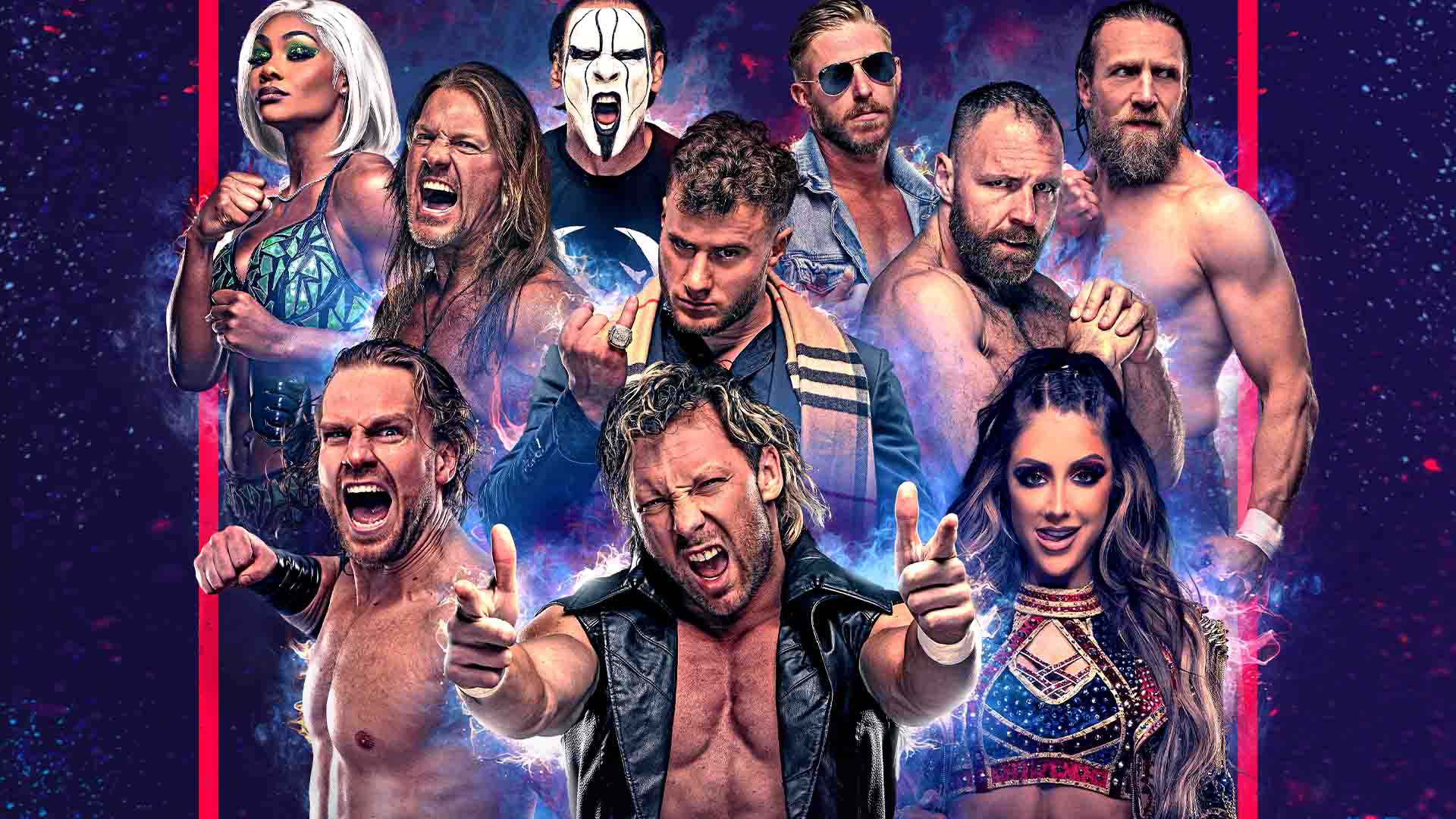
2023 finds the two principal North American promotions not exactly going to war, but having a healthy rivalry that has spurred one another on in such a manner that the quality of their in-ring action and storytelling has consistently managed to reach impressive heights. Old stagers the WWE are still the commercial gold standard, full of bravura soap operatics and OTT production values, but crucially they are putting on some of their best matches in years, with their main roster now regularly troubling the five-star ratings threshold of wrestling journalist uber-nerd Dave Meltzer for the first time since 2011. AEW are something of the hipster wrestling purist’s choice, seemingly run by and for nerds, and routinely astonish with the world-class quality served up by the likes of Kenny Omega, Jon Moxley and MJF.
The way the two companies coexist and function are much like their current videogame counterparts. The WWE 2K23 game is aesthetically and features-wise a clear frontrunner, but lacks the gritty arcade charms and in-ring playability of the more retro AEW Fight Forever. Most genuine wrestling fans will likely want to pick up both, and the hope is that future patches and additions to the latter will bring it more in line with the overall package of its more storied rival. It is, as I mention, all very exciting.
The Aki-tude Era
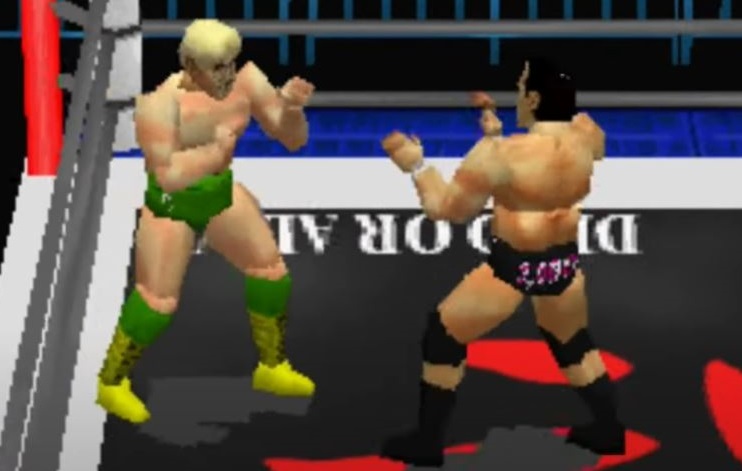
This relatively gentle battle of modern wrestling gaming supremacy is nowhere near as crazy as when shit went down during the Monday Night Wars, and just beyond. I would like to take you on a trip down memory lane, to a time before the World Wildlife Fund won their lawsuit, where the PlayStation and N64 dominated, and the duelling wrestling companies fought a war across the two consoles.
When whoever was in charge of WCW’s videogames wing saw what AKI Corporation had done with their puroresu sim Virtual Pro Wrestling, they must have thought “We are having some of that”. Released across the three main territories from fall ’96 to December 1997, and essentially a reskinned version of their aforementioned debut foray into the grap game, WCW vs the World was a decent starting point and completely went against the grain of what was being served up to Western fans, eschewing the madcap cartoon of stuff like Wrestlemania: The Arcade Game, but not quite nailing the more sophisticated grappling mechanics that were to come. It had a fairly small roster of licenced players from the then-white-hot WCW brand, alongside dozens of renamed combatants from Japanese feds of the day, my favourite fake name being the one bestowed to Scott Norton, who is hilariously given the moniker “Billy Gaijin”. The inappropriateness doesn’t end there either, as the late Road Warrior Hawk is christened “Overdose”. This shit wouldn’t fly these days, not unless Vince McMahon had the pencil anyway.
In comparison, the ailing Acclaim Entertainment, who held the WWF license at perhaps the most stagnant point in its existence, made do with almost silently dropping the barely-there In Your House, essentially a lazy do-over of WM: The Arcade Game, which failed to capitalise on the inherent power of the PS1 and Saturn, and played like an absolute dog.
Meanwhile, AKI continued to up the ante.
Clash of the Titans
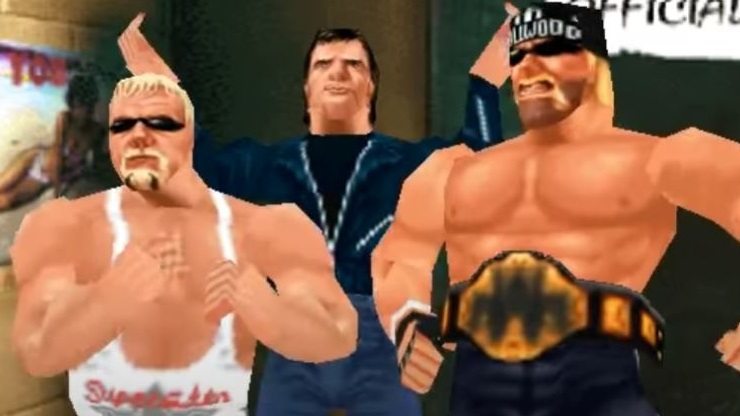
Arriving during Holiday season of 1997 in the States (and rather oddly, February 1998 for Europe), WCW vs nWo: World Tour fully capitalised on the popularity of Ted Turner’s company and the gripping nWo takeover angle that saw beloved babyface Hulk Hogan embrace the dark side to become a despicable heel. A joint venture between Aki and Asmik, and published by THQ, it improved on its predecessor and placed an emphasis on performing moved out of a grapple system, which meant hitting iconic finishers like the Diamond Cutter or the Outsider’s Edge immensely satisfying, especially with all of the flashy camera angles the game throws at you. For UK fans, it wasn’t always easy to keep up with what was going on in WCW, meaning that this sold gangbusters as fans like me took control of the megastars they may have only seen fleetingly in magazines, traded tapes or the burgeoning internet.
1998 was a crazy year as the games came thick and fast. If you include the EU release of World Tour, there were actually three WCW titles churned out in quick succession, with the lacklustre Nitro initially being a PlayStation exclusive, but eventually joined the others by being ported across to the N64. Acclaim clapped back with the impressive-for-the-time War Zone, which had decent looks, a limited creation tool, and plenty of modes – but it felt a bit dry, and was fully usurped by its sequel – more of which later. The finest wrasslin’ experience of 1998 was undoubtedly WCW/nWo Revenge.
The Death of WCW
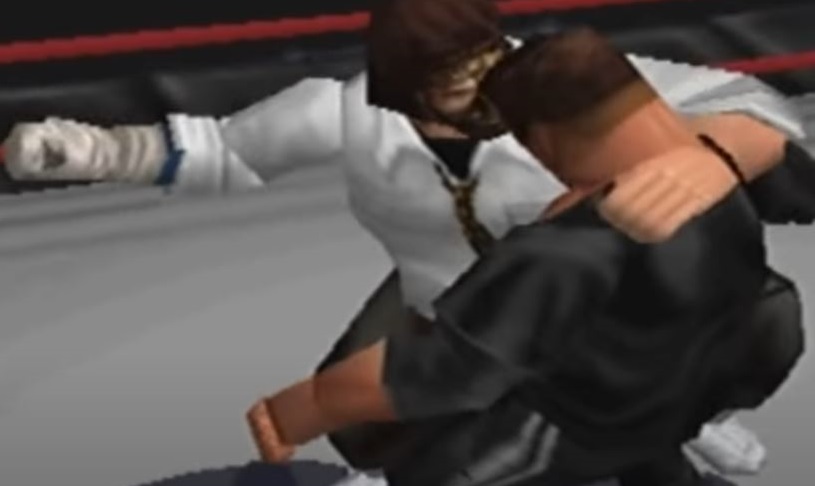
This was Aki’s WCW swansong, as just how the scales were beginning to tip in the favour of WWF in the Monday Night Wars, THQ had acquired the licensing deal for the now-red-hot Stanford outfit. Going out with a bang, Revenge married the time-honoured grappling system to vastly improved graphics and a real flair for the theatrical spectacle of the source material. It was a riot in multiplayer, especially if there were four of you going at it. Despite being the last truly great WCW videogame, it got obliterated by War Zone and its slightly beefier sequel Attitude (1999) in the sales stakes. Subsequent tie ins dipped in quality the same way as the idiotic booking decisions and upsurge in WWF popularity saw World Championship Wrestling hit the skids before being absorbed by Vince McMahon. The likes of Inland Productions and Kodiak were unable to throw down with Aki and as such the likes of Thunder, Mayhem (both 1999) and the piss-poor misfire that was Backstage Assault (2000) all sit very much in the shadow of their Japanese-developed forebears.
THQ called upon Aki to put together 1999’s WWF WrestleMania 2000. There is no escaping the fact that it is rather similar to Revenge, even down to the fact that some of the WCW wrestlers’ moves are cheekily included in the then-generous and sophisticated create a wrestler suite. Much like the event it was based upon, despite being technically proficient and perfectly entertaining, it felt like a bit of damp squib. But wrestling history will tell you that the year 2000 was one of the best years the fed ever had, with just about every single pay per view delivering all-time classic main events, most of them anchored by a never-better Triple H, rising stars Kurt Angle and Chris Jericho, and the stellar talents of The Great One and a returning Steve Austin.
THQ’s next move, this was publishing the home version of the lacklustre Yuke’s/SEGA Naomi arcade effort, Royal Rumble, which had a worldwide arcade release in early 2000. Oddly not featuring enough wrestlers to actually complete the full 30-participant titular battle royal, it was poorly received both as a coin-op and its subsequent Dreamcast port.
Thankfully, 2000 was to be a fine vintage for the Californian giants. Mirroring what went down on tv, THQ delivered gamers a triple threat of wrestling videogame gold the very same year.
Lawd have Mercy
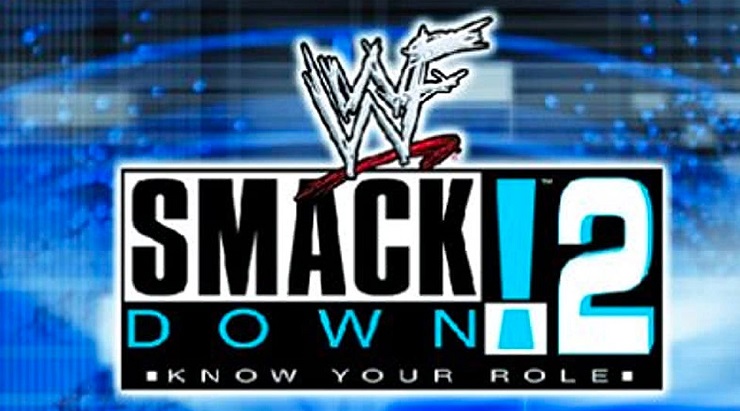
Yuke’s had form for making pro wrestling games prior to their Royal Rumble howler. If like me you were a fan of the Japanese import scene, you may have been aware of D3 Publisher’s wonderfully idiosyncratic Simple series, basically a load of crazy games ideas released at a budget price, often involving niche genres or bonkers themes. It was the birthplace of the Earth Defence Force franchise, which should tell you what kind of stuff they were about. After previously making the Toukon Retsuden licensed New Japan Pro Wrestling games in the mid 90s, Yuke’s also produced two pro wrestling titles under the Simple banner, rather dryly named The Pro Wrestling. Fast moving, exciting and playable with that Simple bonkers-ness, both of these games are must haves if you enjoy the sport and can play import PS1 discs.
If you can’t however, then Yuke’s went and dropped WWF Smackdown! and its even better sequel Know Your Role both within mere months of each other. Moving away from the simulation style, the emphasis on grappling and dialling up the speed, bombast and fun factor, both of these games are representative of the era in wrestling, look absolutely astonishing, and have a wealth of modes and creative options that had a nerdy-assed 19-20 year old (!) me absolutely addicted. I can still remember the thrill of unlocking my favourite wrestler Cactus Jack, the brilliant creative stuff that allowed you to assign managers, design stables and even play around with taunts. There are storyline-based career modes which are immensely entertaining. You can play as Hardcore Holly! And it still makes me laugh that they axed Paul Wight from Smackdown! 2 because he had been demoted to Ohio Valley Wrestling in real life.
They say good things come in threes, or something like that, and this was certainly the case in 2000. Arriving on UK shores a mere fortnight after our minds were blown with Smackdown! 2, Aki and Asmik were back to create more sweet, sweet Nintendo 64 magic together, this time with a clear rival on another format to be mindful of. It is no secret that despite being the creators of the original classic Smackdown! run, Yuke’s were heavily influenced by the iconic, much vaunted WWF No Mercy. Taking things back to the slower paced grappling of their earlier titles, and souping up everything they had attempted in Wrestlemania 2000, whilst also introducing a fantastic Championship mode with branching pathways, No Mercy was rightly critically acclaimed back in the day, and is still played regularly by fans even now.
I recently purchased an N64 and a copy of the game, and was surprised at how well it holds up, with a level of balance and depth than set the high bar for wrestling simulations to come. It was the last traditional wrestling game Aki ever produced. Some will argue that the subsequent Smackdown! outings for the next-gen PlayStation 2, in particular the terrific Here Comes The Pain (2003) took the genre to greater heights, but the 2000s were pretty much a one-horse-race for licensed fare, dominated by the WWE. For me there was no better period to be a wrestling game fan than 1997-2000, and I think the fact that modern developers are still clearly influenced by the games they played back then says a lot. Lets hope that Yuke’s and Visual Concepts can push each other to greater heights the same way Aki, Acclaim and Yuke’s bounced off each other back in the day.


